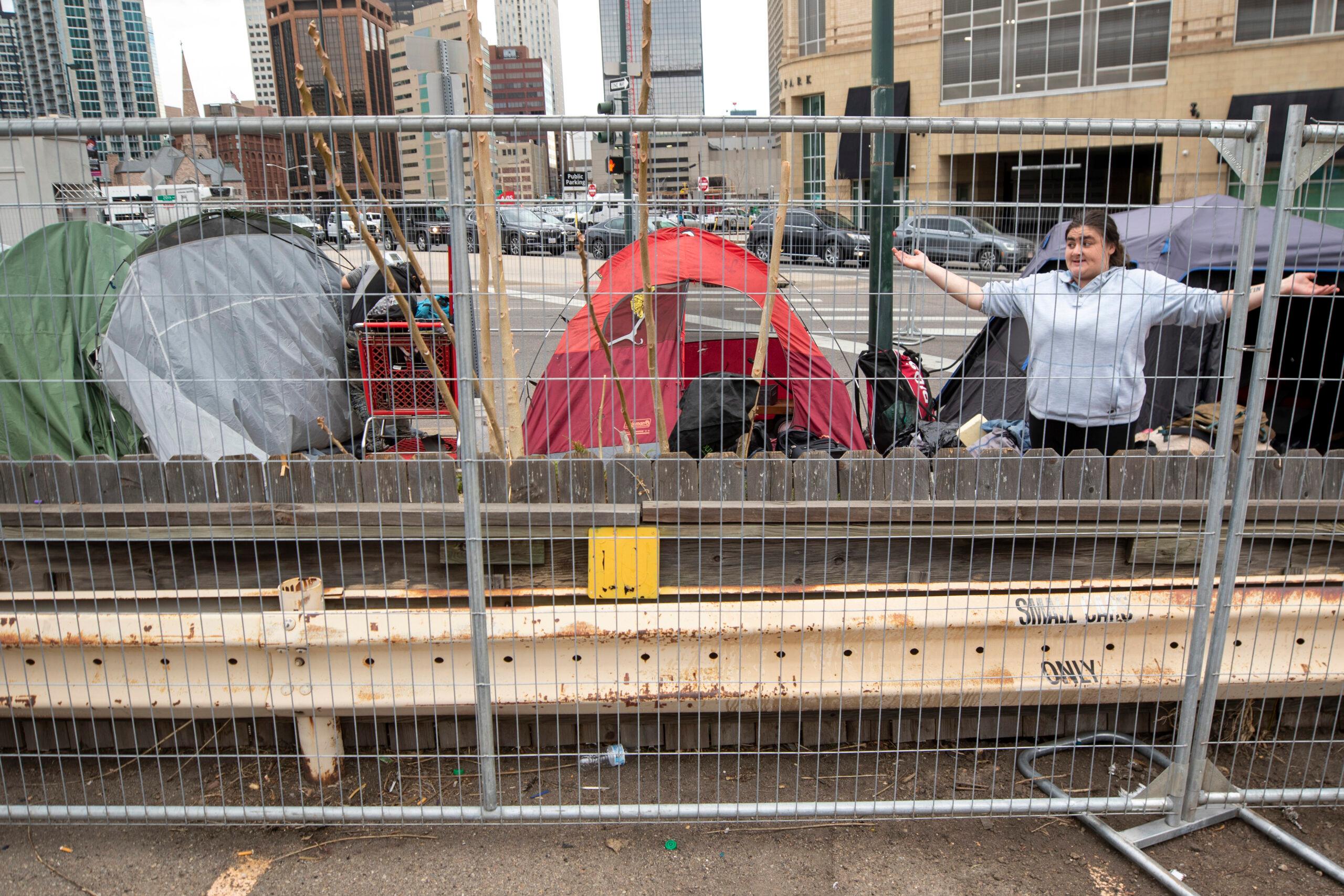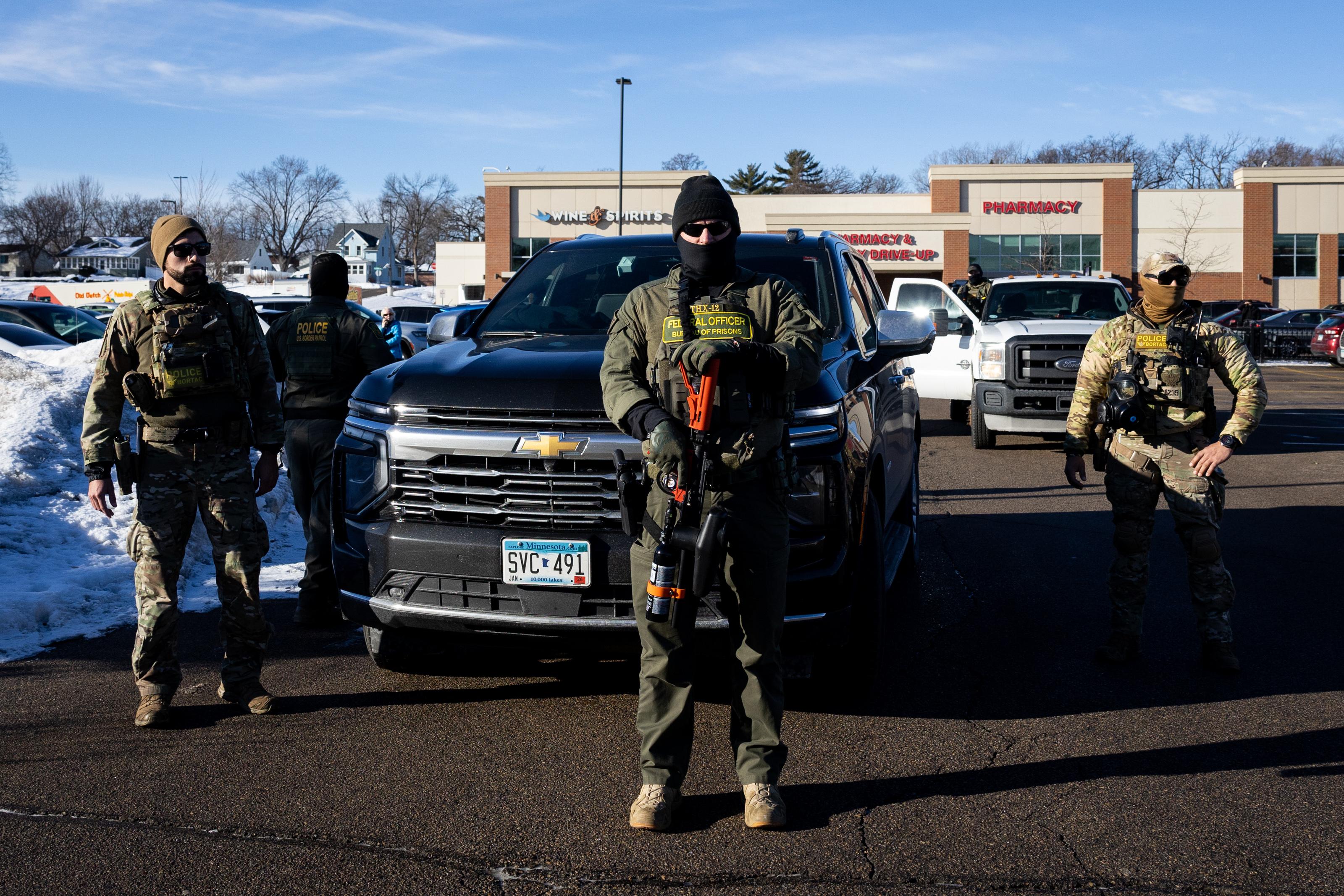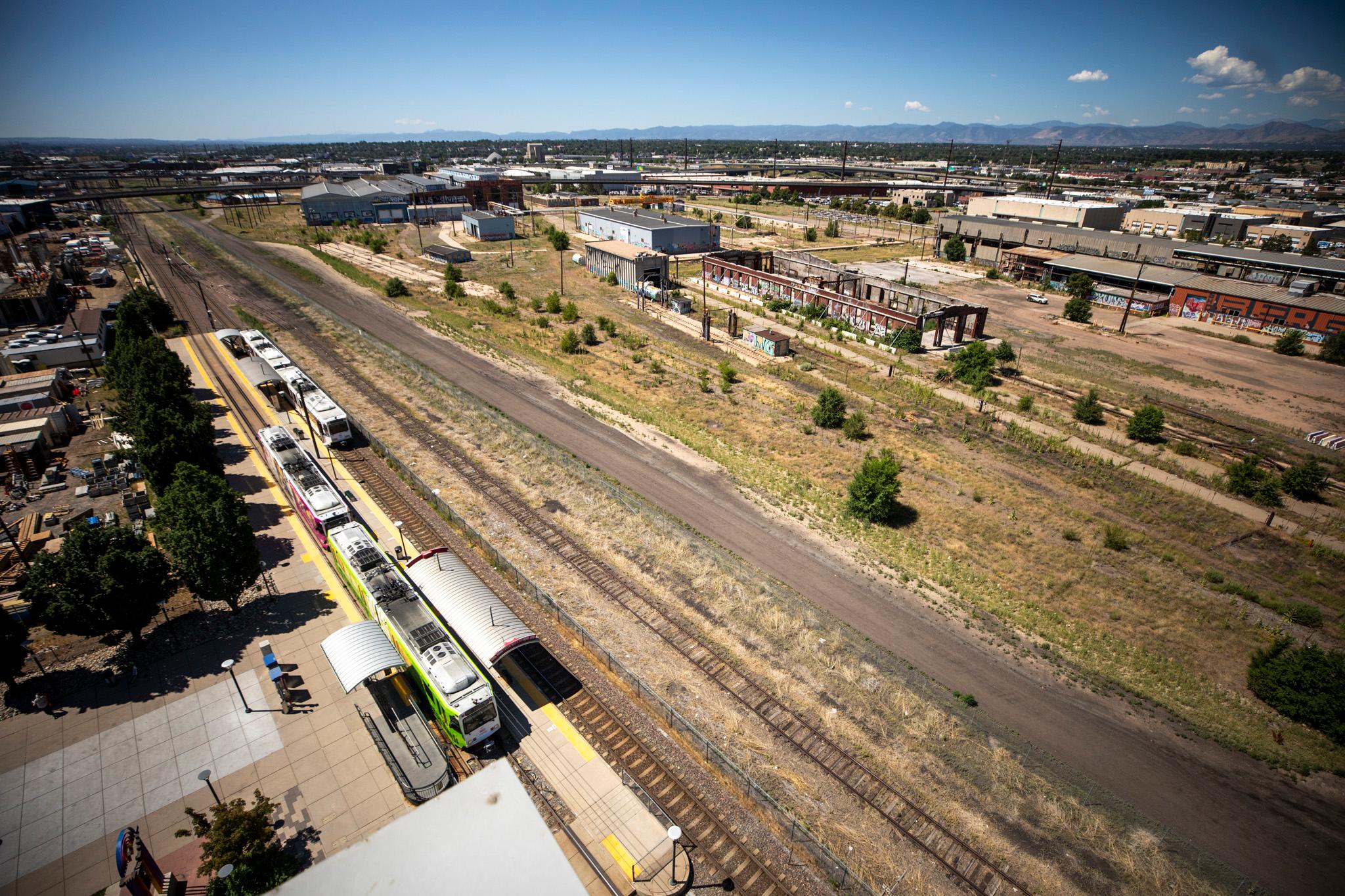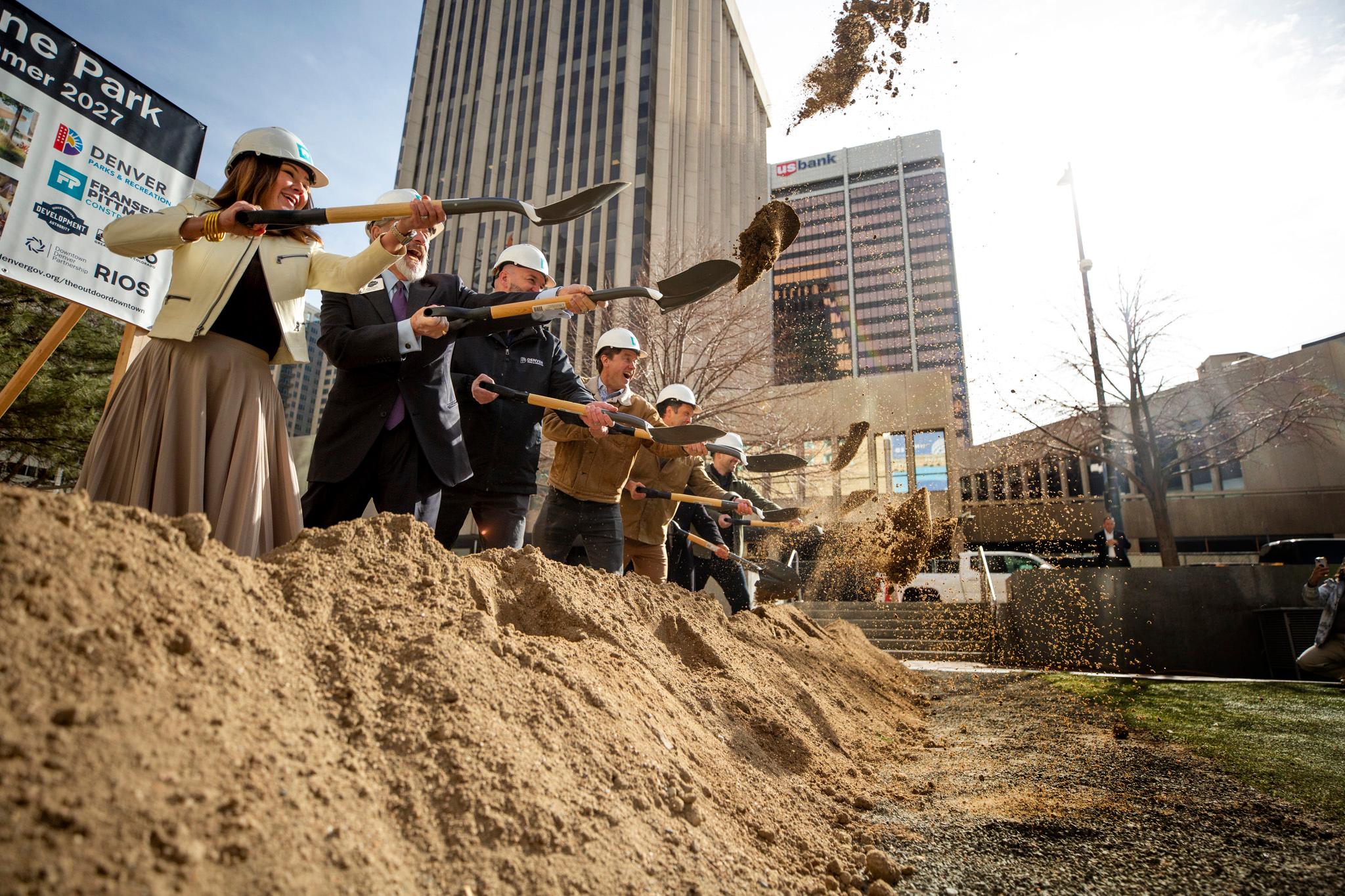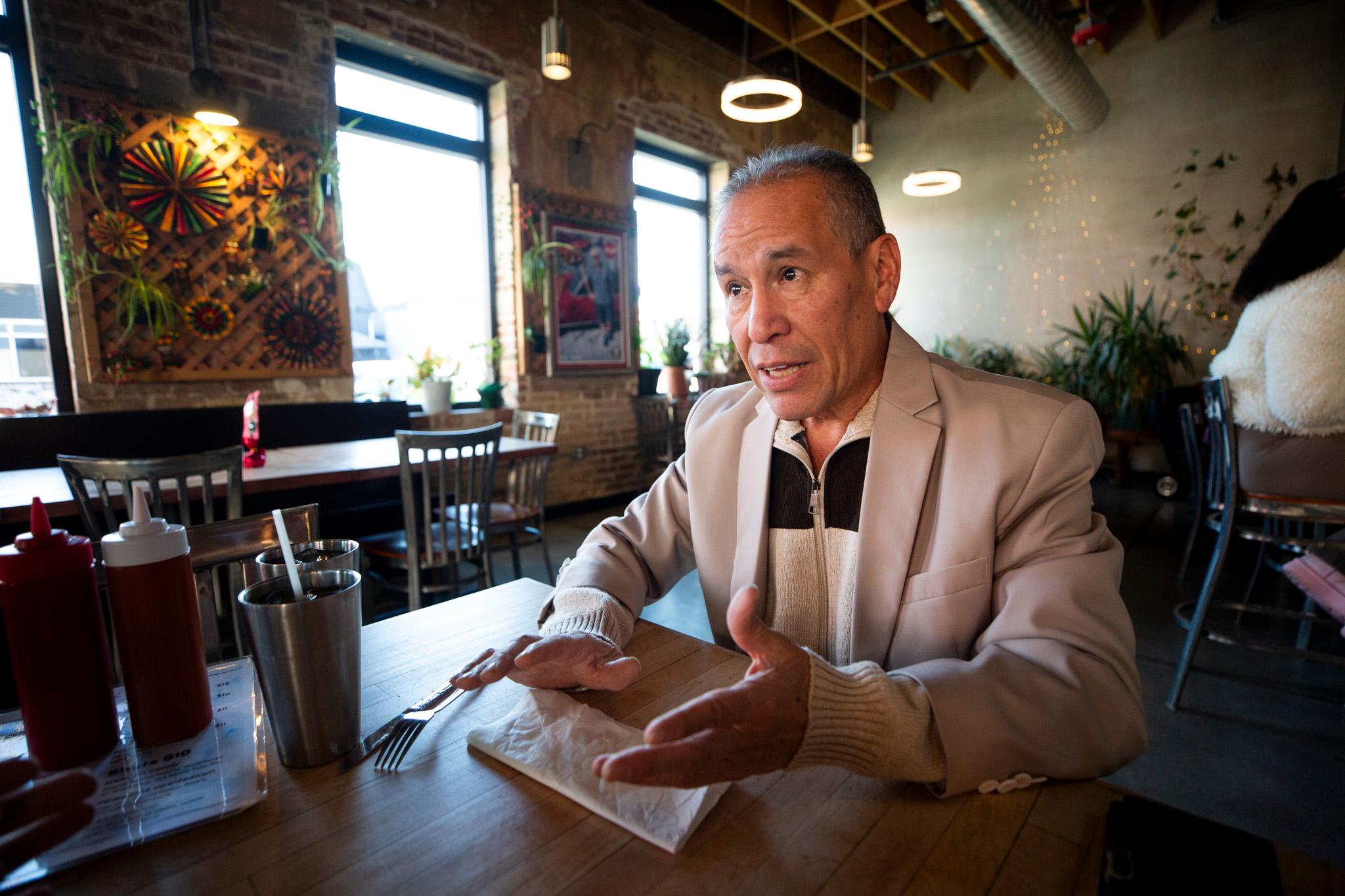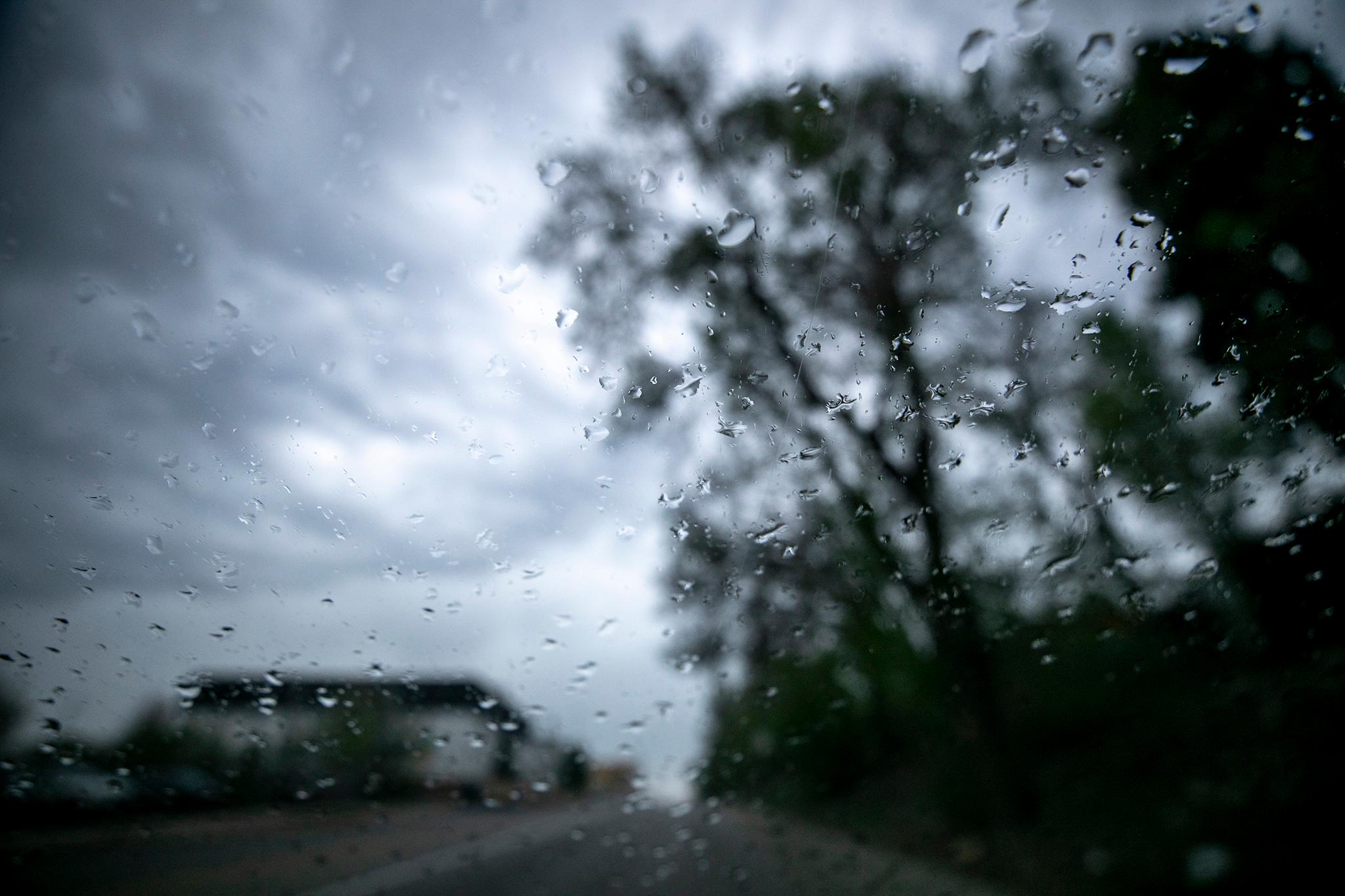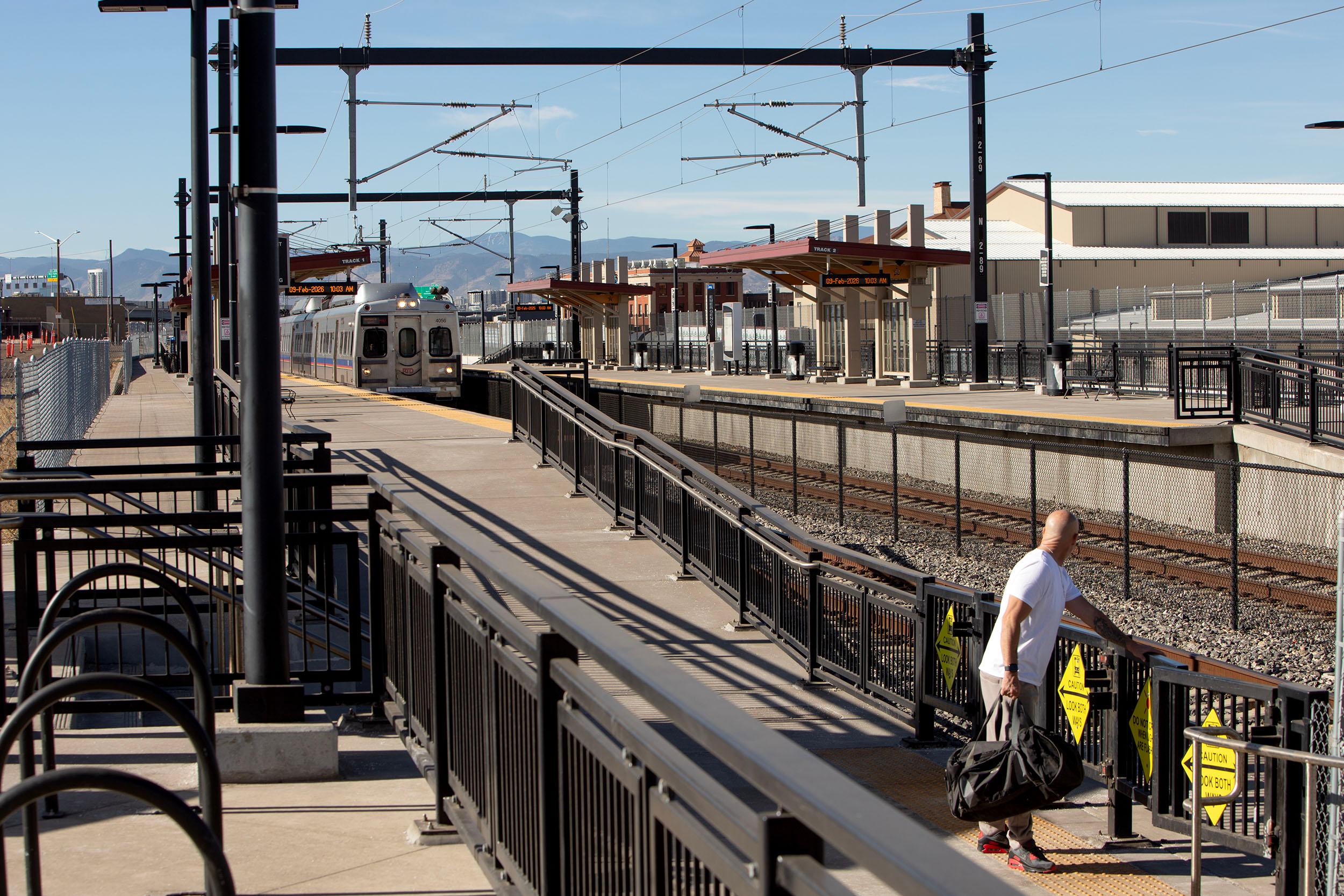"It's time to move now," a police officer, who introduces himself as Sgt. O'Neill, says into a lone tent by the highway. "You're on CDOT property."
"What do you want me to do, drag the whole tent?" a woman responds from inside.
"I need you to get out," O'Neill says, as his body-worn camera records the encounter.
"I'm moving as fast as I can, I'm handicapped," the woman says.
"What is your name? So I can just document who I talk to," O'Neill says after the woman begins to drag what she can carry away from the scene.
"I'm not telling you," she yells back, her voice trembling. "I didn't do anything wrong and I'm leaving voluntarily. Leave me alone."

This episode took place on March 15th, 2023. The broad strokes of O'Neill's message - "get out" - is nothing new in a city that's conducted large-scale encampment sweeps as far back as 2016. But people experiencing homelessness who live in tents, and the advocates who've opposed how Denver treats them, say police and city workers have become more aggressive in recent months. More episodes like this, they say, are happening all over town.
"It has definitely ticked up," Amy Beck, an advocate who sent us the video, told us.
While Mayor Michael Hancock's office told us repeatedly that there's been no changes to protocol or policy regarding visible homelessness, evidence suggests authorities have begun to ramp up enforcement on people without roofs over their heads.
Denver's streets are swarming with talk about crackdowns.
We've attended early morning encampment sweeps in recent months to ground-truth concerns we've heard from advocates like Beck. Nearly everyone we spoke to said police and city workers have directly warned them about increased enforcement in the last few months.
"They just told me that right now," Kim Richmond, who said she's been estranged from family and living outside for four years, told us during a sweep in Five Points. "They're going to crack down on camping and they're going to start handing out citations and taking people to jail."
"They're doing warrant checks. They are talking about no camping in the city of Denver and you're going to get ticketed, blah blah blah," Kevin Tindall, a veteran and chef who grew up in Aurora and has lived outside on-and-off since 2002, said as he moved along. "It's just more bull**** that we gotta adapt to. Just more bull****."

Petar Frocks, who said he's lived outside so long he's developed "reverse agoraphobia," told us officers made him scan his fingerprint on an electronic reader during one cleanup.
"They just said we need to get your fingerprint, see if you have any warrants," he said, "just to see who's here."

Denver passed an "urban camping ban" a decade ago, which allows police to ticket people for sheltering outside. But authorities have only used the statute to ticket or arrest people 50 times in the last 10 years, with just one citation issued so far in 2023. One reason for the scant numbers may be that police are required to issue two warnings before anyone gets a ticket; a Denver Police spokesperson confirmed officers can use fingerprint scanners if people in sweep zones don't have another way to confirm their identity.
Most larger-scale sweeps in areas like Five Points, complete with fencing and big trash trucks, are carried out as public works projects, not to enforce the ban, and they haven't historically resulted in arrests.
But now, people subject to sweeps are worried that they could go to jail.
We cross-referenced police records with the dates and locations of sweeps over the last six months and found a handful of arrests, mostly for open warrants, that took place at the same times and places as these big cleanups. Almost all of these arrests took place in February and March, following two months of sweeps with no matches.
Denver Police public information officers told us details on most incidents were too sparse to confirm if they happened as part of sweeps, or if they just happened next to them.
DPD could confirm that two men were arrested on March 16th, a day after O'Neill's encounter by the highway, as officers were "supporting" a cleanup. Records show both men were picked up for open warrants, and that they weren't charged for any crime that would have opened them up to a warrant search. Usually, arrests for open warrants happen after someone is caught doing something else that's illegal.
Most of the other arrests that took place near sweep locations were similar: DPD records show they were picked up for open warrants without other charges.
Andrew McNulty, an attorney with Killmer, Lane and Newman who's litigated on behalf of homeless residents, said word about about increased warrant checks has been concerning him.
"Let's say you're sitting on a bench downtown ... a cop's not coming up to you and running you for warrants, right? If you're an unhoused person in an encampment, a cop is going up to you to run you for warrants," he said. "That's a huge civil liberties issue, without any suspicion that they're committing any real crime besides existing in downtown Denver."
A DPD spokesperson said officers don't go to sweeps just to check if there are people to arrest.
"During a cleanup, our typical role and approach is to be present to address any safety or security issues," someone from the department said in an email. "With that being said, it is possible for individuals to be contacted for unauthorized camping during a cleanup."

Advocates like Beck and McNulty said there's also been a general uptick in enforcement outside of sweep areas, like the episode with officer O'Neill last month. Denver municipal court records show a growing number of charges issued to people listed without addresses, or listed as "vagrant," "transient," or "homeless." Trespassing tickets, in particular, have more than doubled for this group since January 2022.
When we asked DPD if there's been a change in policy, or a change in posture, when it comes to ticketing or arresting people who live outside, they declined to answer and sent us to Hancock's office.
Two of Hancock's spokespeople responded with the same message to a couple of separate questions: "The city's policy and protocols haven't changed."

Discussions on enforcement, compassion, safety and visible homelessness have taken over public discourse as the city gets closer to a new mayor.
Though Hancock's staffers swear nothing unusual is happening, the mayor joined city, state and federal officials last November to announce a "compassionate crackdown" on crime and homelessness downtown. McNulty, who helped Denver Homeless Out Loud settle with the city over sweep practices in 2019, said that move - and more recent enforcement - is a poetic end to his term.
"It's a nice bookend for Hancock's administration, whose legacy is going to be the camping ban," he said.
Terese Howard, a longtime pro-housing and anti-sweeps activist who now leads the Housekeys Action Network of Denver, said she worries enforcement upticks in Hancock's final months is a sign of what might come next.
"I definitely think Hancock's doing his last hurrah. It feels like he has the power to harass people as much as possible until he's out of office, and set the stage for the next candidate to follow that path. Because if the cops and everyone is trained in these new tactics, a new mayor comes in and is like: this is how do we do things," she told us. "He's laying the foundation."
Homelessness, and what to do about it, have been central topics of debate during Denver's municipal election cycle. Both Kelly Brough and Mike Johnston, who are competing in a runoff for the mayor's seat, have said they would not end sweeps, though they say they'd provide other routes for people to leave illegal encampments. More than half of respondents to a mayoral election survey said they supported Brough's plan to arrest people who refuse to leave encampments and head into sanctioned shelters.
Meanwhile, a researcher based at the University of Colorado Anschutz Medical Campus released a report last week suggesting sweeps may be killing people. Service providers and case managers have long said that constantly moving people along impacts their mental health and makes it impossible to keep in touch with people they're hoping to move into housing.

But beyond the life-and-death concerns behind a lot of this discourse, McNulty said most people who sleep outside just want to know what to expect as they try to survive. Just establishing that was one motivation behind the 2019 settlement.
"There needs to be some sort of rules and consistency, otherwise it's just extremely stressful for unhoused folks, obviously," he said.
That consistency may still be elusive, especially as people staying in encampments try to understand if an arrest might come along with an order to move along. Last week, city workers called off a sweep midway into the morning after they learned they hadn't properly warned people, leaving fences surrounding those who hadn't left yet.
"You can stay," sweeps manager Matthew Wilmes told a group of people who'd already emptied out their tents.

